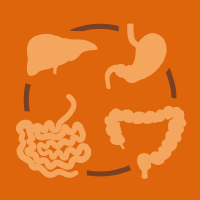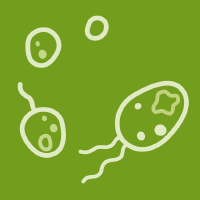Topic Editors


High-Throughput Analyses as a Multi-Faceted Approach for Characterizing the Human Microbiota
Topic Information
Dear Colleagues,
The advent of high-throughput technologies has significantly contributed to expanding our knowledge on the composition of the resident microbiota of different human niches, including the gut, skin, and genital tract, in health as well as disease conditions. In this regard, in recent years, the microbiota has been involved in several pathologies, such as bacterial as well as viral infections (e.g., Chlamydia trachomatis and/or HPV in the female genital tract) or chronic inflammatory conditions (e.g., diabetes, obesity, chronic atrophic gastritis or non-atrophic pangastritis). The growing body of data provided by the different approaches for microbiota investigation, such as DNA sequences from next-generation sequencing techniques, can be analyzed via several powerful computational methods to provide a comprehensive description of the bacterial composition as well as a functional characterization via the prediction of metabolic pathways. In the present topic collection, we welcome innovative articles on the interrelationship between the different microbial communities and the pathophysiology of human diseases. We are interested in full-length manuscripts based on original research, systematic reviews and/or meta-analyses, and methodological advances.
Dr. Simone Filardo
Dr. Rosa Sessa
Prof. Andrea Carolina Entrocassi
Topic Editors
Keywords
- human microbiota
- high throughput techniques
- computational analysis
- chronic diseases
- infectious diseases
Participating Journals
| Journal Name | Impact Factor | CiteScore | Launched Year | First Decision (median) | APC | |
|---|---|---|---|---|---|---|

Gastroenterology Insights
|
2.9 | 2.7 | 2009 | 32.6 Days | CHF 1600 | Submit |

Infectious Disease Reports
|
3.2 | 3.2 | 2009 | 27.2 Days | CHF 1800 | Submit |

Life
|
3.2 | 2.7 | 2011 | 17.5 Days | CHF 2600 | Submit |

Microbiology Research
|
1.5 | 1.3 | 2010 | 16.6 Days | CHF 1600 | Submit |

Microorganisms
|
4.5 | 6.4 | 2013 | 15.1 Days | CHF 2700 | Submit |

MDPI Topics is cooperating with Preprints.org and has built a direct connection between MDPI journals and Preprints.org. Authors are encouraged to enjoy the benefits by posting a preprint at Preprints.org prior to publication:
- Immediately share your ideas ahead of publication and establish your research priority;
- Protect your idea from being stolen with this time-stamped preprint article;
- Enhance the exposure and impact of your research;
- Receive feedback from your peers in advance;
- Have it indexed in Web of Science (Preprint Citation Index), Google Scholar, Crossref, SHARE, PrePubMed, Scilit and Europe PMC.

